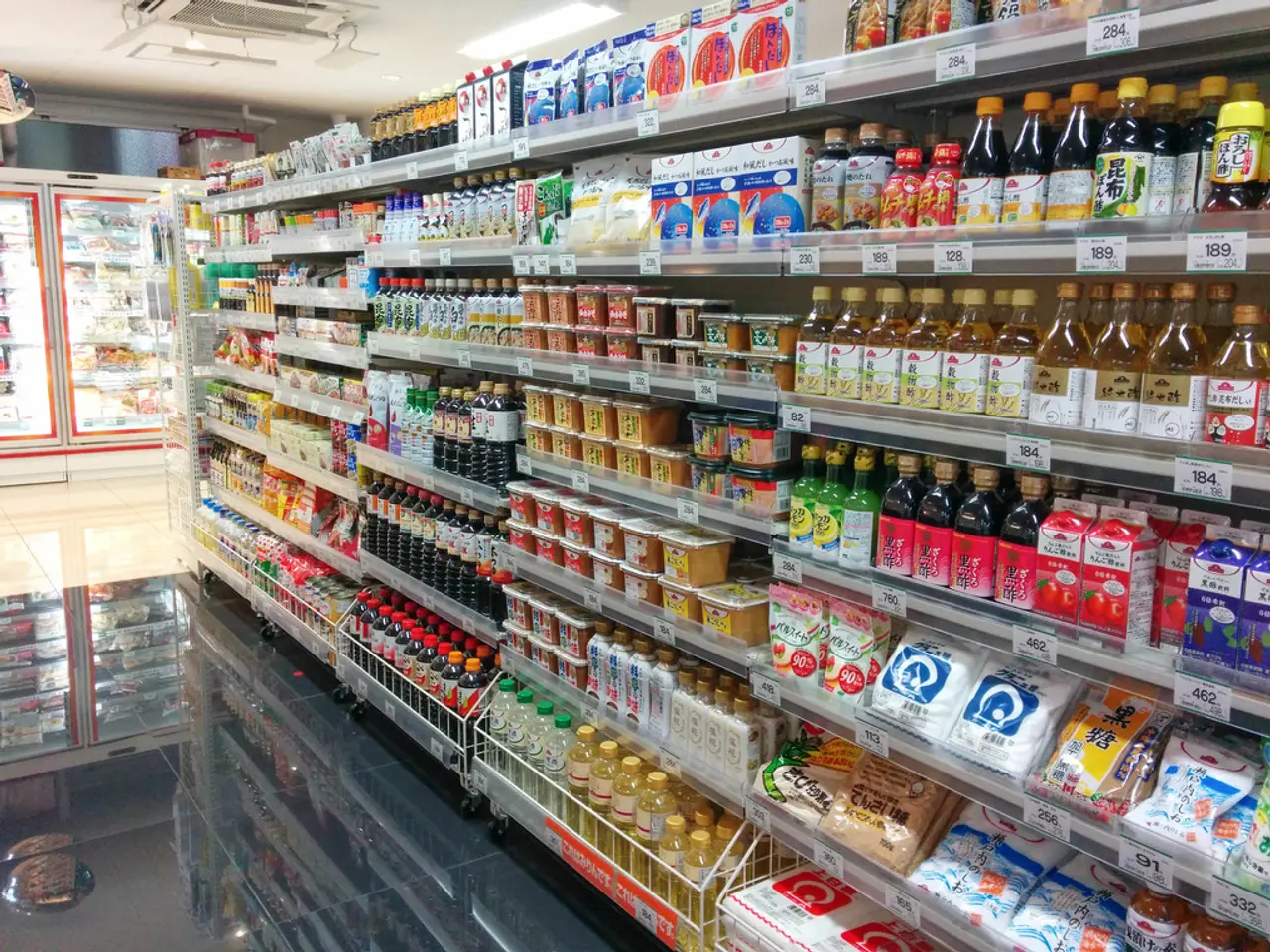Consumers plan to accrue credit card debt and rely on Buy Now, Pay Later options to cover holiday expenses
Holiday Shopping Trends for 2022: A Mix of Strategies and Cautious Spending
As the holiday season approaches, retailers are adapting to a complex array of factors, including tariffs, shipping costs, and consumer behaviour. A survey by Inmar Intelligence sheds light on these trends, revealing that 18% of respondents plan to shop with small businesses this holiday season, while nearly a third (32%) will opt for big-box retailers like Walmart and Target.
Petr Marek, co-founder and CEO at Invoice Home, notes that consumers are being strategic with their spending and affordability during the holiday season. This strategy is evident as more than a third (37%) of Americans consider buying gifts as more important than their credit card balance this holiday season.
However, a significant portion of U.S. shoppers are willing to go into credit card debt for holiday spending. About one in five millennials (19%) and Gen Z (20%) plan to use buy now, pay later services for holiday expenses. Sixteen percent of respondents will use AI tools like ChatGPT for holiday spending, according to the survey.
Retailers are managing tariff-driven price increases ahead of the holiday season by adjusting pricing strategies, pulling purchases forward, and balancing inventory costs. Larger retailers like Home Depot and Costco have attempted to “hold the line” on prices, avoiding immediate increases on essential items. However, some manufacturers have already raised prices, and more price hikes are anticipated as tariffs fully take hold.
The U.S. Postal Service is increasing shipping rates during the holiday season, adding another layer of price increases for retailers and consumers alike. Rising warehouse storage costs due to increased demand are pushing retail operating expenses higher, which may be passed on to consumers, particularly if inventory cannot be fully stocked before tariff changes.
The survey found that consumers are planning to use buy now, pay later services and AI tools for their holiday spending. The majority of respondents said they will reduce their spending on groceries and other necessities to cover their holiday expenses. Nearly half (47%) of respondents expect to spend most of their holiday purchases with Amazon.
Walmart and Lululemon have warned of higher prices to cope with tariffs during the holiday season. Half of respondents in the survey said they won't shop with retailers that increase their prices, up from 25% in 2024. Twenty-five percent of respondents plan to use buy now, pay later services for holiday spending.
In conclusion, the holiday shopping season of 2022 is shaping up to be one of cautious spending and strategic choices. Retailers are navigating a complex landscape of tariffs, shipping costs, and consumer behaviour, leading to a mix of price adjustments and strategic inventory management. Consumers, on the other hand, are being choosier with their purchases and are willing to explore new payment options like buy now, pay later services and AI tools. The holiday season promises an interesting blend of tradition and innovation.
[1] "Tariffs and Retail: What You Need to Know." National Retail Federation, 2022. [Online]. Available: https://www.nrf.com/resources/tariffs-and-retail-what-you-need-know
[2] "How Tariffs are Impacting the Holiday Shopping Season." CNN Business, 2022. [Online]. Available: https://money.cnn.com/2022/10/20/news/economy/tariffs-holiday-shopping-season/index.html
[3] "How Retailers are Dealing with Tariffs Ahead of the Holiday Season." Forbes, 2022. [Online]. Available: https://www.forbes.com/sites/ashleystahl/2022/10/25/how-retailers-are-dealing-with-tariffs-ahead-of-the-holiday-season/?sh=774f0f703e9f
[4] "USPS Announces Holiday Shipping Rate Increases." USPS, 2022. [Online]. Available: https://about.usps.com/newsroom/statements/2022/pr22_095.htm
[5] "Retail Sales Spike as Shoppers Rush to Buy Ahead of Tariff Increases." The Wall Street Journal, 2019. [Online]. Available: https://www.wsj.com/articles/retail-sales-spike-as-shoppers-rush-to-buy-ahead-of-tariff-increases-11569759919
- In a bid to cope with tariffs, Walmart and Lululemon have announced higher prices for the upcoming holiday season.
- A significant number of U.S shoppers are contemplating using buy now, pay later services and AI tools like ChatGPT for their holiday shopping, according to a survey.
- The US Postal Service is planning to increase shipping rates during the holiday season, adding another layer of price increases for retailers and consumers.
- Retailers are adapting to rising warehouse storage costs due to increased demand by potentially passing on cost increases to consumers, especially if inventory cannot be fully stocked before tariff changes.
- In the wake of tariffs and shipping cost increases, a portion of the American consumers are planning to reduce their spending on groceries and other necessities to cover their holiday expenses.




